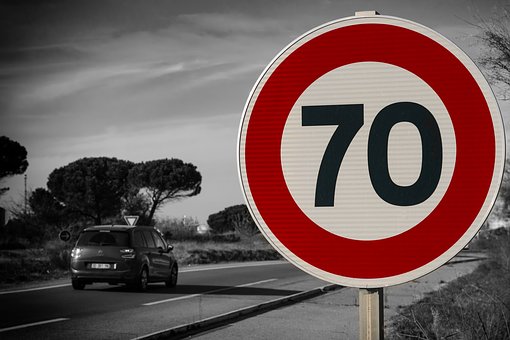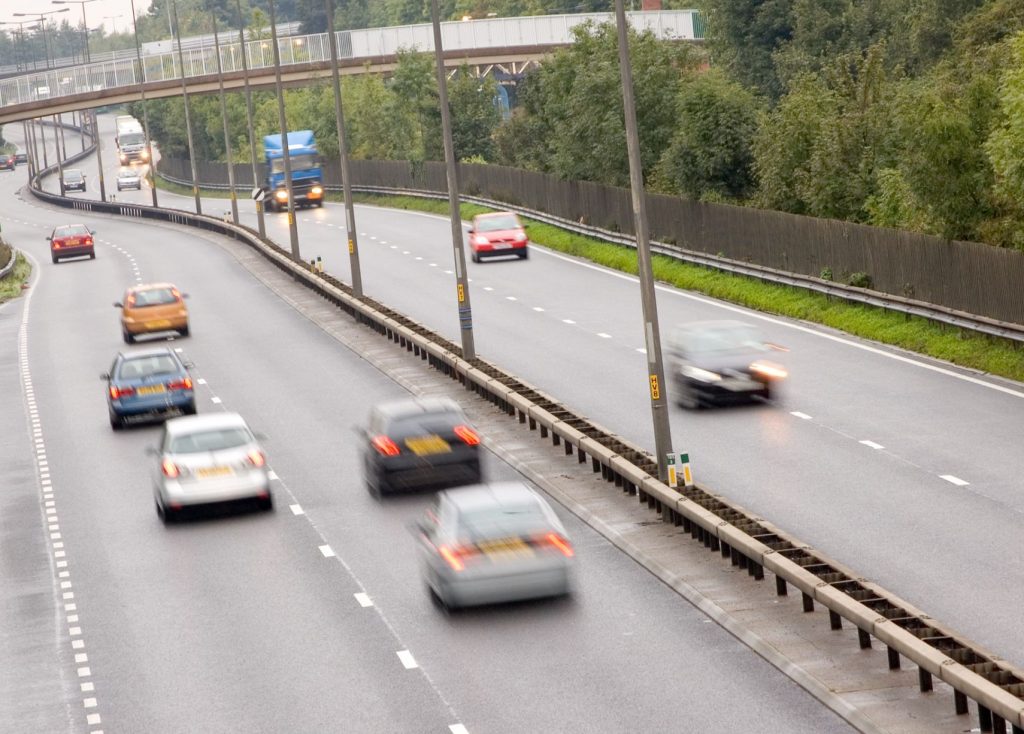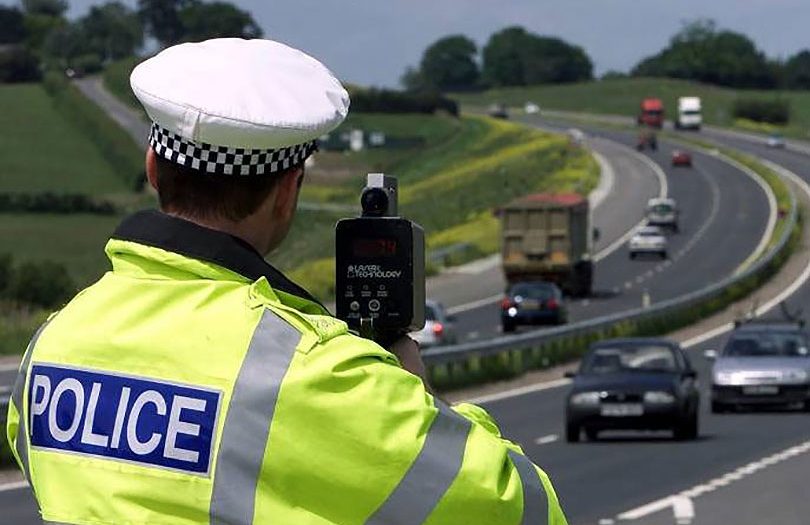FEW THINGS ANNOY US more at seniordriveraus than being treated as stupid. Here’s a surprise for authorities: we aren’t. And nor are our readers.
So why can’t they come clean with us about important issues such as the effectiveness of double demerit points applied during periods of high risk on our roads?
As is becoming more common, over the Easter period a number of States introduced double demerit points for driving offences such as speeding, using a mobile phone while driving, and not wearing a seat belt.
Over Christmas, NSW and the ACT ran a double demerit program from 23 December 2022 until 3 January 2023, a period of 11 days. Western Australians faced an even longer period of double demerits, from 23 December 2022 until 8 January, or 16 days, with the penalties being applied to such offences as speeding, drink-driving, failing to wear a seatbelt, using a mobile phone while driving or running a red light. WA upped the ante by applying a 14-point penalty during the period should a motorist be apprehended driving a vehicle fitted with a device designed to evade detection by a speed camera, meaning an instant suspension of licence. (WA was the last State to ban the use of radar detectors, introducing new legislation in October 2020. Outside the double demerit period, drivers caught with a radar detector fitted to their car, operational or not, will be issued with a $1200 on the spot infringement and lose seven demerit points. Truck or other heavy vehicle drivers caught with a radar detector will be issued with a $1500 infringement notice and seven demerit points.)
At present, Victoria, South Australia, Tasmania and the Northern Territory do not apply double demerit penalties at any time of the year.

Queensland follows its own rules.
Things are done differently in Queensland (now where have we heard that before?). Double demerit points are applied for the second and subsequent offence if the later offence is committed within 12 months of the earlier offence.
Why? According to a spokesperson for the Queensland Transport and Main Road Department, “There is no proven safety or deterrent benefit from enforcing double demerit points during holiday periods only.”
There is some logic to this policy. If you have incurred a speeding fine and demerit points, you will be very aware that another infringement will incur double demerit points and take greater care not to infringe again.
It was a similar case some time ago in Tasmania (although we are almost certain it no longer applies). Tourists issued with a speeding fine in the Apple Isle were advised that should they not be issued with a second speeding fine during their stay, the first one would be annulled. It was a terrific incentive to not be hit with a second fine and we’re sure resulted in a lot of tourists driving within the speed limit for the remainder of their visit.

Consistency across different States? Forget it!
All Australian jurisdictions, bar one, apply their own demerit point penalties to motorists who are caught infringing road rules in a State or Territory outside their home State or Territory.
The loss of demerits and the size of the fine will be based on those that apply in your home State. Just to confuse things further, ACT motorists caught infringing traffic rules in other States will be hit with the relevant fine and demerit points applicable in the region they are travelling in.
For example, a Victorian driver caught speeding in NSW over Easter will not be given double demerits because the penalty will be the same as applies in Victoria. On the other hand, if a Victorian is caught using a mobile phone while driving in NSW, he or she will receive a fine and four demerit points, despite the offence carrying a five demerit point penalty in NSW, and ten over the double demerit period. The fine, in this case, would be $362 (or $481 in a school zone) as per NSW rules, rather than the $545 the same offence would incur in Victoria.
Confused? We are. And we fail to understand how there can be different laws for different people. Is it reasonable that someone from NSW will lose more demerit points than a Victorian driver for the identical offence?

Saving lives? Nobody can agree.
When the Road Safety and Injury Prevention Officer of Parkes, Forbes and Lachlan Shire Councils introduced double demerit points from 25 January to 29 January 2023 (when students went back to school), she trotted out the same old line. “Since their introduction in 1997, double demerit points have proven to be a successful deterrent to unsafe driving behaviours and reducing the road toll on holiday periods when the roads at their busiest. There has been a 30 percent reduction in casualty crashes that are directly attributable to double demerits.”
Well, Melanie Suitor, we beg to disagree.
As usual with road toll figures, the numbers are simply too small to be statistically significant (and the 2023 Easter road toll bears this out). But that doesn’t stop people putting them forward as proof that double demerit points are effective.
A recent poll showing that more than 50 percent of respondents were in favour of rolling out double demerit penalties nationally is a case in point (although we strongly suspect those in favour of rolling the scheme out nationally probably live in jurisdictions where double demerits are already in place and feel that everyone should face the same draconian rules).
Predictably, the report quoted statistics that supported its case. “Both NSW and Victoria have reported an average of three road fatalities over the Easter period between 2018 and 2021. However, the NSW annual toll has been declining (down 23.2 percent year-on-year) whereas Victoria has been climbing (up 29.8 percent on 2022), a stark contrast between a State with double demerit points and one without.”
This is typical of the way statistics are distorted. Using percentages rather than actual numbers is always a red flag. If there is one fatality in one year, and two in the second, that’s a 100 percent increase. And as we said, these numbers are too small to be statistically dependable.

This Easter, there has been a string of fatalities and crashes across the country, with at least 16 people losing their lives. On Good Friday, four people died in a collision south-east of Yass near the ACT-NSW border (with both jurisdictions applying double demerits). Later the same day, a motorcyclist was killed near Dorrigo in northern NSW, and another man died in a single vehicle collision at Oakville in Sydney’s northwest.
So, six fatalities on the first day of the Easter break in NSW, but none in Victoria. So much for the argument that double demerit points brought about a decline in the NSW toll and lack of demerit points an increase in the Victorian road toll in previous years!
More fatalities were recorded over the Easter break: a motorcyclist in Perth (Monday); one person in a two-vehicle crash in Townsville (with two more taken to hospital in critical condition); a fatality at Wangaratta after a single vehicle rollover on Sunday night; a male passenger in Melbourne after a car overturned and ploughed into a paddock; a woman died following a crash near Copping in Tasmania; two were killed in separate incidents in the NT (a quad bike rider and a motorbike rider); another died in a single car rollover west of Alice Springs; and there were three more fatal crashes in regional areas of WA, SA and Tasmania on Easter Sunday.
That is a truly depressing list. But if double demerit points are so effective, why did a disproportionate number of deaths occur (eight of the 16) where double demerits were being applied? Because, as we keep saying, a single four-fatality crash is sufficient to totally distort the figures, as has happened here.
Transport NSW road safety chief Bernard Carlon pushed the corporate line when he said, “We know that double demerits are an effective road safety initiative. We’ve reduced deaths on our roads during holiday periods by a third since they were introduced.” Note the lack of proof that it was double demerit points that brought about the reduction. What about safer cars? More seatbelt compliance? Safer roads?
Victoria doesn’t agree (although that probably won’t stop them considering introducing double demerits). “Victoria Police does not support the introduction of double demerits in Victoria at this time,” they said in a recent statement.
Western Australia’s roads departments reported a “consistent reduction in injury and death” after instituting the measures in 2002, but provided no data to support their assertion that double demerits were responsible.
Professor Max Cameron of Monash University Accident Research Centre argues that the data that double demerits result in reduced fatalities is inconclusive. He would rather see governments eschew the “cheap and easy option” and more vigorously use speed cameras, lower speed limits and increase the quality of road surfaces.
Why not all year round?
If the argument that double demerit points result in a decline in the road toll is irrefutable, then why would double demerit points not be implemented all year round? Or quadruple demerit points at high-risk times?
Of course, such a suggestion is absurd, and the authorities know it.
If the chance of being killed or seriously injured on our roads isn’t sufficient to deter dangerous behaviour, why would harsher penalties, demerit points or ever-increasing fines have an effect on the road toll?
As we all know, the definition of insanity is repeating the same action in the expectation of a different outcome.
Our road safety authorities have run out of ideas. All they can do is call for stricter penalties and lower speed limits.
Australian motorists deserve better.
